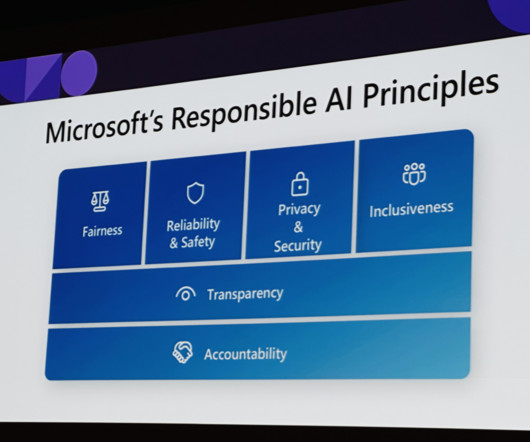Unlocking AI’s Potential: Live Blog #ISTELive
The CoolCatTeacher
JUNE 26, 2023
10:38 Zeeshan Anwar (Chief Product Officer) and Tara Carrozza (Director of Digital Learning Initiatives) for NYC Public Schools Advice is to make sure that you have AI Accountabilities in place. Zeeshan Anwar Tara Carrozza: Worked with “Z” (Zeeshan) on building the Azure data link. Discussing how they can secure data.



































Let's personalize your content